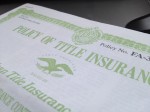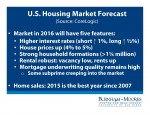How to Assess the Cost of a Real “Fixer-Upper”

When you buy a fixer-upper residence for either personal or investment reasons, you need to have a thorough understanding of all of the potential related additional costs to determine if it is a worthwhile investment.
The following analysis in introspection will assist you in determining much you can afford, how much to offer, and whether a fixer-upper house is right for you.
Decide what you can do or want to do yourself
TV remodeling shows make home improvement work look like a snap. In the real world, attempting a difficult renovation job that you don’t know how to do will take longer than you think and can lead to less-than-professional results.
Do you really have the skills to do it? Some tasks, like stripping wallpaper and painting, are relatively easy. Others, like electrical work, can be dangerous when done by amateurs.
Do you really have the time and desire to do it? Can you take time off work to renovate? If not, will you be stressed out by living in a work zone for months while you complete projects on the weekends?
Price the cost of repairs and remodeling before you make an offer
If you are using a professional get several estimates on the work you want done by licensed and insured contractors.
If you’re doing the work yourself, price the supplies.
Either way, tack on 10% to 20% to cover unforeseen problems that WILL arise when you start to open walls, remove windows, install electric and plumbing, etc.
Check permit costs
Ask local officials if the work you’re going to do requires a permit and how much that permit costs. Doing work without a permit may save money, but it’ll cause problems when you resell your home. Also check to ensure that there was no other non-permitted work done to the home. If you get permits that chance that this work will be found and cited is likely.
Decide if you want to get the permits yourself or have the contractor arrange for them. Getting permits can be time-consuming and frustrating. Inspectors may force you to do additional work, or change the way you want to do a project, before they give you the permit.
Factor the time,costs, and additional requirements of permits into your plans.
Double check pricing on structural work
If your renovation plans include major structural work, hire a structural engineer to inspect the home before you put in an offer so you can be confident you’ve uncovered and conservatively budgeted for the full scope of the work required.
Get written estimates for repairs before you commit to buying a home with structural issues.
Don’t purchase a home that needs major structural work unless:
You’re getting it at a steep discount
You’re sure you’ve uncovered the extent of the problem
You know the problem can be fixed
Check the cost of financing
Be sure you have enough money for a down payment, closing costs, and repairs without draining your savings.
If you are planning to fund the repairs with a home equity or home improvement loan:
Get yourself pre-approved for both loans before you make an offer.
Make the deal contingent on getting both the purchase money loan and the renovation money loan, so you’re not forced to close the sale when you have no loan to fix the house.
Include inspection contingencies in your offer
Don’t rely on your friends or your contractor to eyeball your fixer-upper house. Hire pros to do common inspections such as whole home inspection, radon, mold, lead-based paint, chinese drywall, septic, well and pest.
Lastly, don’t pay more than fair-market value
Have your EXCLUSIVE BUYER AGENT develop an comparative market analysis that makes adjustments for all of the issues involving the property, location, condition, time value of money, et. al. A transactional broker or listing agent is interested in selling the property for the highest price and is not working in a buyer’s best interest. Always use an EBA when purchasing real estate.









 Kim N. Bregman
Kim N. Bregman